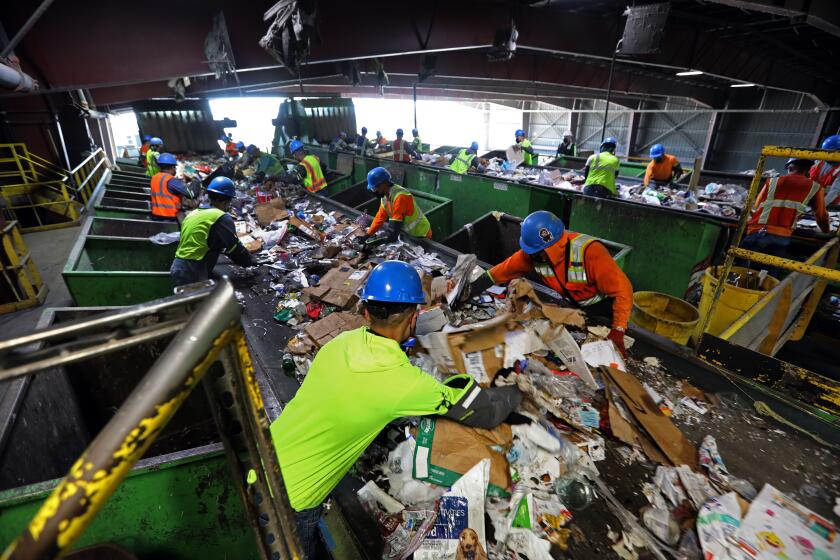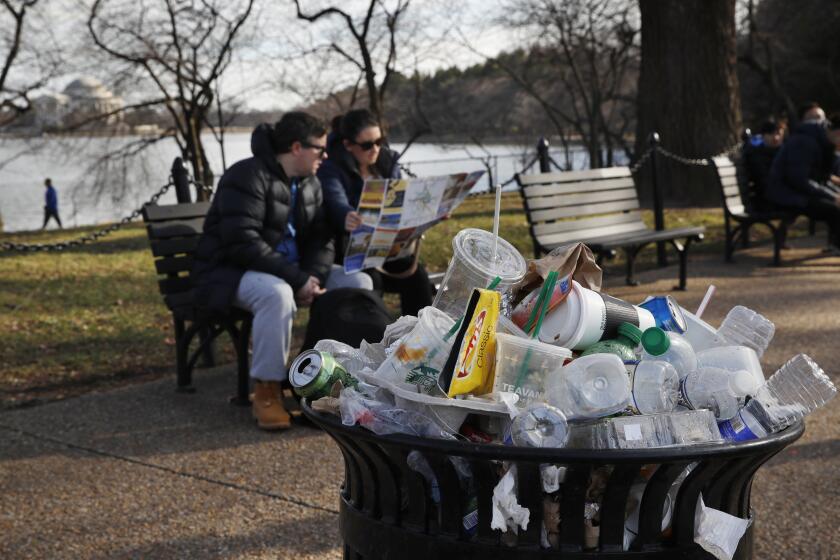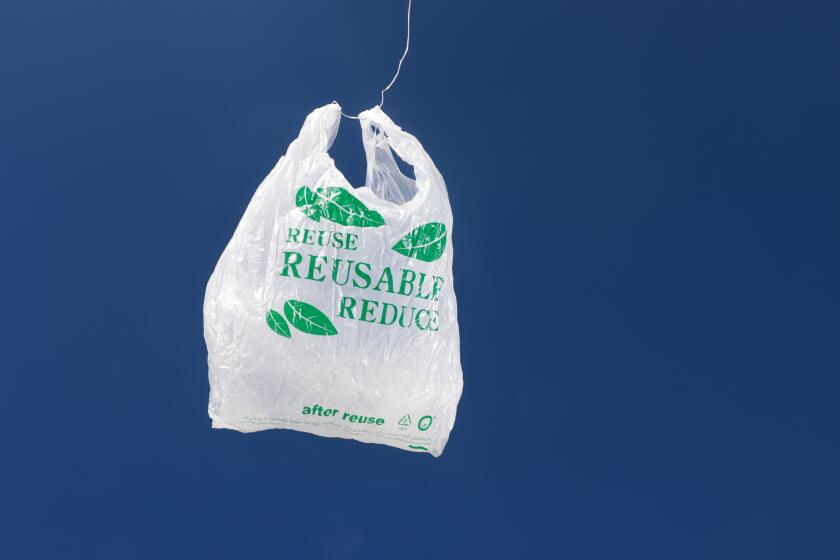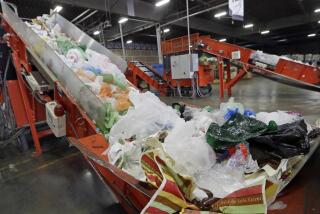Irvine proposed banning single-use plastics. After industry lobbying, city leaders backed off

Leaders in Irvine had an opportunity to enact a sweeping waste-reduction ordinance that would have prohibited the sale, use and distribution of single-use plastics, putting it at the forefront of Orange County attempts to combat plastic pollution. But this week the City Council put the move on ice, citing a lack of outreach and the broad scope of the proposed ban.
The proposal would have barred restaurants and food retailers in Orange County’s third-largest city from using plastic utensils, foodware, straws, stirrers, bags, water bottles or containers, as well as products made of expanded polystyrene. It would have also banned the release of Mylar and latex balloons because the items eventually fall back to Earth and litter either the land or ocean, according to agenda documents.
The ordinance would have been phased in over three years to allow time to educate the public on the new rules.
During three hours of public comment at Tuesday night’s City Council meeting, 55 of the 86 commenters spoke in favor of the proposal, including local environmentalists, residents, students and some businesses.
Californian’s recycling habits are changing for the better, but there’s still plenty of room for improvement.
“I never saw this kind of community turnout in Irvine; I was touched,” said Hoiyin Ip, co-chair of the Sierra Club California Zero Waste Committee.
The council’s decision, on the other hand, was a “victory of the industries,” she said.
Councilmember Kathleen Treseder said community members, including herself, experienced “lobbying pressure” by the American Beverage Assn. in the weeks leading up to the meeting. The proposal also drew opposition from the California Grocers Assn.
Robocalls, emails, text messages and home visits inundated many in Irvine to talk specifically about a “water bottle ban,” Treseder said, which was not the entirety of the proposed ordinance.
In a statement, American Beverage Assn. spokesperson Steven Maviglio said the group is “grateful that the City Council listened to the recycling advocates, local business owners, community leaders and residents who testified that a plastic bottle ban would negatively impact local jobs, unfairly restrict consumer choice and most importantly, inhibit statewide initiatives to reduce the use of new plastic.”
The legislation heads off what would be a costly and contentious ballot measure and pushes California ahead of the world in the fight against plastic waste.
The council’s decision to table the ordinance was due to a lack of response from the local business community, officials said. City staff received 120 responses of feedback on the proposed ban, which Vice Mayor Tammy Kim said was disappointing considering Irvine has 17,000 business licenses within its jurisdiction.
The city put an information banner in the Orange County Register but didn’t translate the information for outlets such as Nguoi Viet News or La Opinión to reach non-English-speaking business owners, Kim noted.
Opposition to the proposed ordinance didn’t come as a surprise to Richard Busch, co-chair of the Surfrider Foundation’s North Orange County chapter. He said many in the community were upset when California’s statewide ban on single-use carryout bags was enacted in 2016.
“Now people drive around and have reusable bags in the trunk of their car,” Busch said.
California’s plastic bag ban aimed to reduce waste and increase recycling, but it hasn’t worked out as planned. What went wrong?
After that ban, Busch said it took several years for his chapter to stop seeing plastic bags from grocery stores in their beach cleanups.
Irvine’s proposed ordinance is similar to bans enacted in other cities across the state and in line with Senate Bill 54, legislation Gov. Gavin Newsom signed in 2022 that requires all packaging in the state to be recyclable or compostable and 65% of all single-use plastic packaging to be recycled by 2032.
“It’s not every day that a city, especially in Orange County, decides to jump on global trends,” Busch said.
Instead of approving the ordinance or parts of it, the council directed staff to return after more outreach is conducted, which will influence a revision of a more narrow scope of the ban at a later undetermined date.
More to Read
Sign up for Essential California
The most important California stories and recommendations in your inbox every morning.
You may occasionally receive promotional content from the Los Angeles Times.














